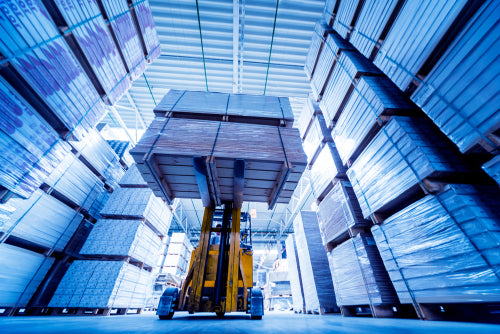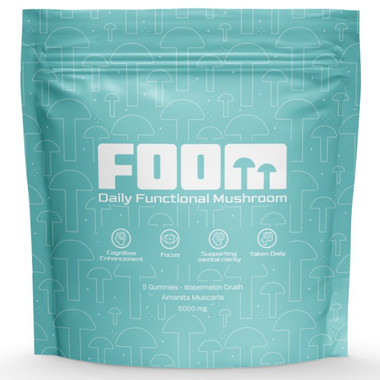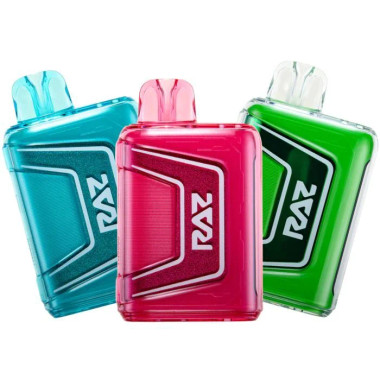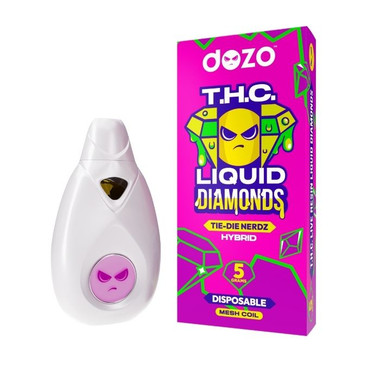How to Find the Best Wholesale Suppliers for Vape Shops
Estimated 0 min read
Choosing the best supplier for your business doesn’t have to be complicated. Sure, there are many options to choose from, and many businesses you don’t want to be doing business with, but filtering out bad manufacturers and suppliers has a method to it.
You’ll have to jump through a few hoops before you land the right supplier or the right lineup of multiple suppliers, but you’ll finally get there by following the tips we’ve listed below. Much of the process to find a proper small business wholesale supplier needs to be mastered with practice, there are things you can do to spare yourself some unwarranted headaches.
Although:
First, you’ll have to understand the difference between a supplier and a manufacturer. Even more importantly, you’ll have to decide which one of the two you should be looking for.
Table Of Contents
- What Is a Manufacturer?
- What Is the Difference Between a Manufacturer and a Supplier?
- Pros & Cons of Domestic Sourcing
- Pros & Cons of Sourcing Overseas
- Must-Know Information on Potential Suppliers
- Tips for Sourcing Wholesale Vendors for an Online Vape Store
- Conclusion
What Is a Manufacturer?
A manufacturer is a business that makes its revenue by building and sometimes designing the product they sell at a cost higher than what it costs them to make said item. Manufacturers are a possible business model because, even though they might not sell to the end customer, they possess all the production expertise, raw material supplier knowledge, and are usually owners of their production facilities. All things that retailers do not have.
On the other hand:
Retailers have all the direct access to the final customer. Whether that final customer is another business or an individual consumer is irrelevant. Retailers also have the marketing knowledge that pushes product sales, and they usually have a brick & mortar store, an online retailing website, or both. In this case, we’ll be alluding mostly to online retailers like yourself.
However:
This does not mean that manufacturers cannot sell the goods to consumers directly and work as a manufacturer/retailer business. They can also be wholesalers and distributors.
Manufacturers usually make a specific type of product, especially if they’re also the main retailers for the product they’re making. Even if they don’t sell their products to the end customer, they likely stick to a single type of product because it creates more trust and generates expertise in the manufacturing processes involved.
Depending on the volume they carry, retailers will sometimes work with multiple manufacturers, and manufacturers will work with multiple retailers. This will be done in an attempt from both sides to “not put their eggs in a single basket”.
As a retailer, having a single manufacturer can be a risky business in case there are raw material shortages or other unexpected issues with the supplier. As a manufacturer, selling to a single retailer is equally risky because it means that the entire revenue made by the company is relying on a single partner to sell it.
What Is the Difference Between a Manufacturer and a Supplier?
Suppliers and manufacturers are almost the same things. But there is a slight difference between the two.
Suppliers are any type of business that can supply you, the retailer, with the product you’re looking to sell. Regardless of whether or not they manufacture it.
That said:
The term ‘supplier’, includes manufacturers, wholesalers, and distributors. So, while all manufacturers are in fact suppliers, not all suppliers are necessarily manufacturers. The below are the main types of wholesalers & suppliers you’ll find in most industries:
1. Trading Companies
Retailers and importers looking for goods to sell will go to manufacturers and wholesalers directly whenever they can. But sometimes this isn’t possible or convenient, so they’ll visit trading companies.
Traders are businesses that have a direct relationship with wholesalers and manufacturers that hold the goods but they don’t typically have the goods in stock themselves. Traders will be more expensive than going to the wholesaler or manufacturer directly, but they can exist because they have a working relationship with different manufacturers, they can speak your language if you’re trying to purchase products from overseas suppliers, they have access to different types of goods, and they accept smaller order quantities.
2. Wholesalers
Wholesalers are similar to trading companies. They have working relationships with different manufacturers, they might be manufacturers themselves, but they purchase the products before selling them to you, unlike trading companies.

Wholesalers may also have warehouses near you. Which is a big advantage in comparison to trading companies when you’re buying product built overseas because this way wholesalers can offer faster response times.
3. Manufacturers
We’ve already touched base on this one so we’ll keep it short. Manufacturers own the factories and usually focus on a specific product type. Manufacturers may have an in-house design team but don’t necessarily need to have one.
4. Distributors
The distributor business model is very similar to that of the wholesaler. The difference is that wholesalers will typically sell products in larger quantities. Distributors can also sell products in bulk but may also sell in smaller quantities to small-sized retailers. Distributors could also operate as an intermediary between wholesalers and retailers.
5. Importers
Importers could be any distributor, wholesaler, or even trading company that concentrates specifically on imported goods. They purchase their stock from one country and sell that same product in a different country. Importers come in handy when you cannot speak the language of the main supplier or don’t know your way around a foreign market.
Pros & Cons of Domestic Sourcing
The following are the main advantages and disadvantages of buying products from domestic sources in the U.S., Canada, and most European countries. Most of the items mentioned below are in comparison to purchasing from Asian manufacturers but not always applicable.
Pros:
- Faster Response Times & Delivery
- Potentially Better Quality & Easier Quality Assurance
- Better Labor Standards
- No Language Barrier
- Higher Marketing Appeal
- Better Intellectual Property Protection
Cons:
- Higher Costs
- Fewer Options to Choose From
Pros & Cons of Sourcing Overseas
The following are the main advantages and disadvantages of buying products from overseas sources instead of the U.S., Canada, and most European countries.
Pros:
- Lower Costs
- Many Manufacturers to Choose From
Cons:
- Lower Quality Product & Harder to Manage Quality Assurance
- Poorer Labor Standards
- Poor Intellectual Property Protection
- Time-Zone & Language Barriers
- On-Site Visits are More Expensive & Time-Consuming
- Slower Response Times & Delivery
Must-Know Information on Potential Suppliers
- Do they take custom orders?
- What are their standard lead times?
- Do they have minimum order requirements (MOQs)?
- Shipping Costs & Time Frames
- Are they open to an exclusivity agreement?
- Will they charge you for molds and other production fees?
- What Incoterm standard do they ship to?
Tips for Sourcing Wholesale Vendors for an Online Vape Store
Now that you know the types of vendors and suppliers you can choose from, the only thing that’s left to do is finding them. Which is about 80% of the job.

So much so, that there are whole businesses built around finding you the right supplier (i.e. trading companies).
1. Where to Find eCommerce Suppliers for Vape Shops
Hopping on Google is a valid way to do it, but probably not the most effective way when it comes to overseas sourcing. Fortunately, there are a few companies out there that can help you find a supplier.
Companies like Alibaba, Aliexpress, and ThomasNet make it easier for you to find a supplier, but they do not guarantee that the supplier you’ll find is reliable. Especially if you’re dealing with overseas companies.
The best way to ensure that you get what you pay for when you paid to get it is by visiting the supplier in person and negotiating your order directly. If your supplier is in China, then this means taking a trip to China. A long, exhausting, and expensive venture that is enough to draw the attention of retailers like yourself towards importers.
2. Have a List of Wholesale Vendors on the Ready
Before you decide you want to work with a supplier, make sure you are making a list of all the suppliers you meet and visit. If you’re taking a trip to China, it might be a more profitable idea to visit several suppliers in a single trip, especially if the money for the trip is coming out of your pocket.
A supplier list is important to have at hand to compare prices and conditions when making a supplier decision. But proves to be an even more important tool when the supplier you chose fails to deliver the promises made. It is then that you want to have a list of wholesale vendors that can fulfill your order and save your business for the season.
3. Partner With a Brick & Mortar Store
If you don’t have a list of suppliers you can fall back on, or if all the potential suppliers are busy with other orders, then it might be time to get creative. Partnering with a brick & mortar vape store could help solve stock issues, and even better, it might be a win-win sort of partnership.
Physical vape stores that have a difficult time meeting their sales targets might be overstocked and interested in entering the online sales business. In other words, you have the expertise to help them through an online sales strategy and they have the product that will allow you to save face with your customers if you failed to find a supplier on time for the season.
4. Source Your Products Internationally
As you most likely know by now, working with international suppliers means you have a lot more room for profit with every item you sell. If you have the sales volumes to back up an international operation, then it might be worth taking a look into purchasing your stock overseas.
5. Details That Need Ironing Out Before Placing a Big Order
- Does the supplier have the product you’re looking for?
- How much stock does the supplier have on hand at a time?
- What is the minimum order quantity (MOQ)?
- What is the supplier’s turnaround time on a purchase order (PO)?
- What are the payment terms?
- What is the supplier’s returns policy?
- Does the supplier speak your language?
- Does the supplier have other clients in your industry?
- Is the supplier available during your region’s business hours?
6. Examine Dropshipping Wholesaler Options
Dropshipping is a business model that abolishes the need to have stock. It enables you to cut down on warehousing costs by letting you place orders and having the supplier send the product to your customer directly.
But bear in mind, dropshipping could be beneficial but it is also risky. Taking a dropshipping wholesaler approach means you’ll have to share your customer’s information with your supplier and you’ll also lose complete control over shipping processes.
7. Ask for Samples & Compare Supplier Quotes
Asking for quotes from several suppliers for comparison is a very straightforward practice and we doubt you need us to tell you to do it. But asking for samples is something that some people could bypass.
Getting a sample before placing an order, especially from an international supplier is extremely important. It allows you to assess the quality of the product you’re purchasing first hand and it is direct evidence of the type of product that was promised to you before the deal was made.
Conclusion
Manufacturers are one of the first steps a successful online vape shop needs to cover. These are the companies and businesses that will provide your business with the product you’ll sell, without them, there is no product. But manufacturers aren’t necessarily your supplier. Suppliers could be the manufacturers themselves or just intermediaries.
You may look for either domestic or international suppliers. But each one has a specific set of advantages and disadvantages that you should consider before making a final decision. Once you’ve decided on the type and location of your suppliers, there are a few key tips that might come in handy when it comes time to choose the right one for your business.










